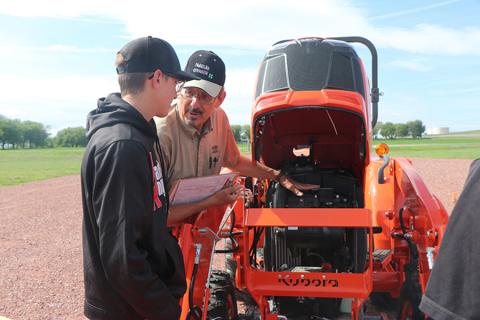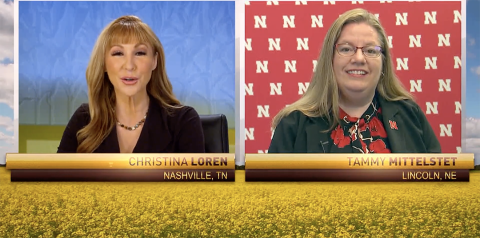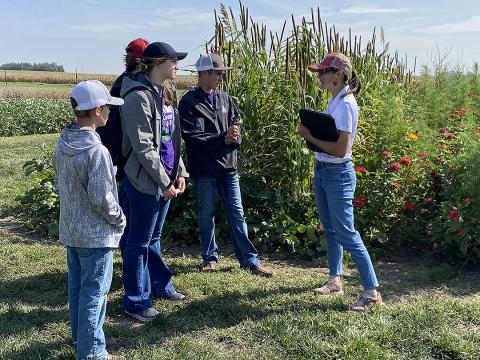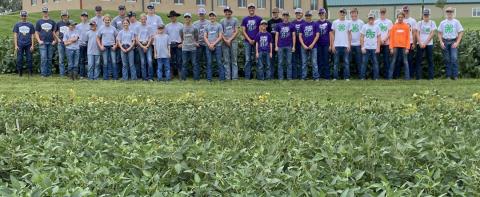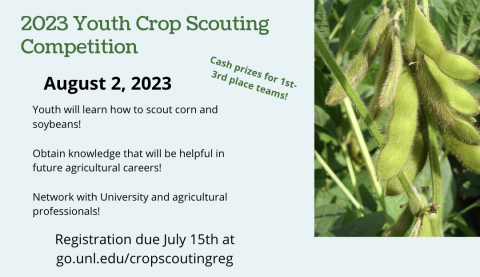2024 Special Agronomy Project - Sugarbeets
The Nebraska Extension Special Agronomy Project allows 4-H members to experience a crop that is grown, was grown, or has the potential to be grown in Nebraska. Youth participate by receiving seed and resources to grow the crop, research traits of the crop and determine the viability of that crop in the part of the state they live. The project allows 4-H members interested in agronomy to grow something fun, new, and different. 
In the fourth year of the special agronomy project, youth will explore sugarbeets. Sugarbeets are a major contributor to the U.S. sweetener industry and occur in a vast range of different food products.
2024 Resources
PROCESS & GUIDELINES
Step 1: Enroll
Enroll for the Agronomy Project through 4-H Online. There is a small enrollment fee of $1.00 for this project which covers the cost of seeds.
Step 2: Order Seeds
Contact your local Extension office and tell them how many seed packets you need. The county office will order seeds as a county unit and then distribute them to the enrolled members. Place your order as early as possible as counties must have their unit orders submitted by March 1st.
(Seeds are limited on a first-come, first-serve basis.)
Step 3: Pick Up Seeds
Seeds will be sent to the county Extension offices. Pick seeds up from your local Extension office when the county informs you that seeds are available (should be around March-April).
Step 4: Plant & Cultivate
Review regular project newsletter and resources as they become available. These materials will help guide you through the project experiences, solve problems, and prepare your projects for exhibition.
Step 5: Exhibit at County & State Fairs
Exhibits – Youth must be enrolled in the Special Agronomy Project through 4-H Online to exhibit in the State Fair Class G750011-G750013.
-
G750011 - Special Agronomy Project - Educational Exhibit (SF259)- Educational exhibit based on what was learned from the project. Present information on a poster 14” X 22” either vertical or horizontal arrangement or in a clear plastic report cover. The 4-H member’s name, age, full address, and county must be on the back of the poster or report cover. Refer to Scoresheet SF259 Each display must have a one-page essay (minimum) explaining why the exhibitor chose the area of display and what they learned from their project. Include any references used.
-
G750012 Special Agronomy Project -Video Presentation - 4-H exhibitor designs a multimedia presentation related to the crop. This could include narration of the growing process, presenting facts about the crop or any other innovative multimedia practices. The presentation should be at least 2 minutes in length and no more than 5 minutes in length, appropriate graphics, sound and either a video clip, animation or voice over and/or original video clip. Any of the following file formats will be accepted: mp4, .mov, .ppt, or .avi.
-
G750013 Special Agronomy Project (Freshly Harvested Crop) Plant exhibits must be the result of the current year's project. Depending on the type of crop selected for the current year: Beans - 6 stalks (cut at ground level with no roots or soil and bound together)
-
Supporting documentation (½ to 1-page in length) should include the following:
-
Economic Analysis and/or research that supports the feasibility of this crop in Nebraska or how the crop has evolved over time.
-
Other topics to discuss are past/current commercial production of this crop. This includes the selection of variety or hybrid, impacts of tillage and conservation practices, inputs (fuel, fertilizer, irrigation, labor, pesticides, etc.), any observations made during the growing season about this crop and what you learned from your crops project. This ½ to 1-page summary counts as 50% of the total when judged.
-
In addition to the summary, grain and plant exhibits will be judged on condition, appearance (i.e. disease and insect damage, grain fill), uniformity (size, shape, color, maturity), and quality of exhibit.
Step 6: Complete Evaluation
Complete the evaluation no matter what happens. If every single plant lived, insects ate them off, or even if they all died, fill out the evaluation near the end of the growing season (around State Fair time).
